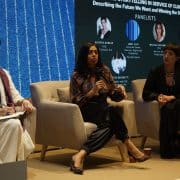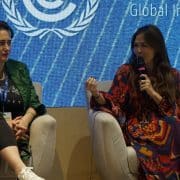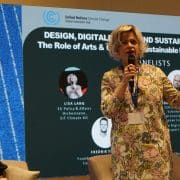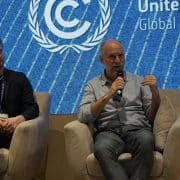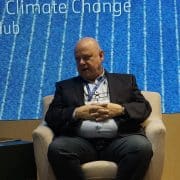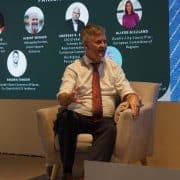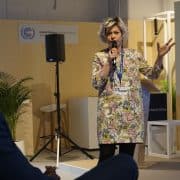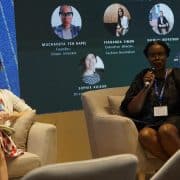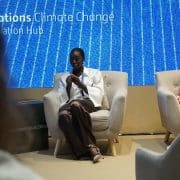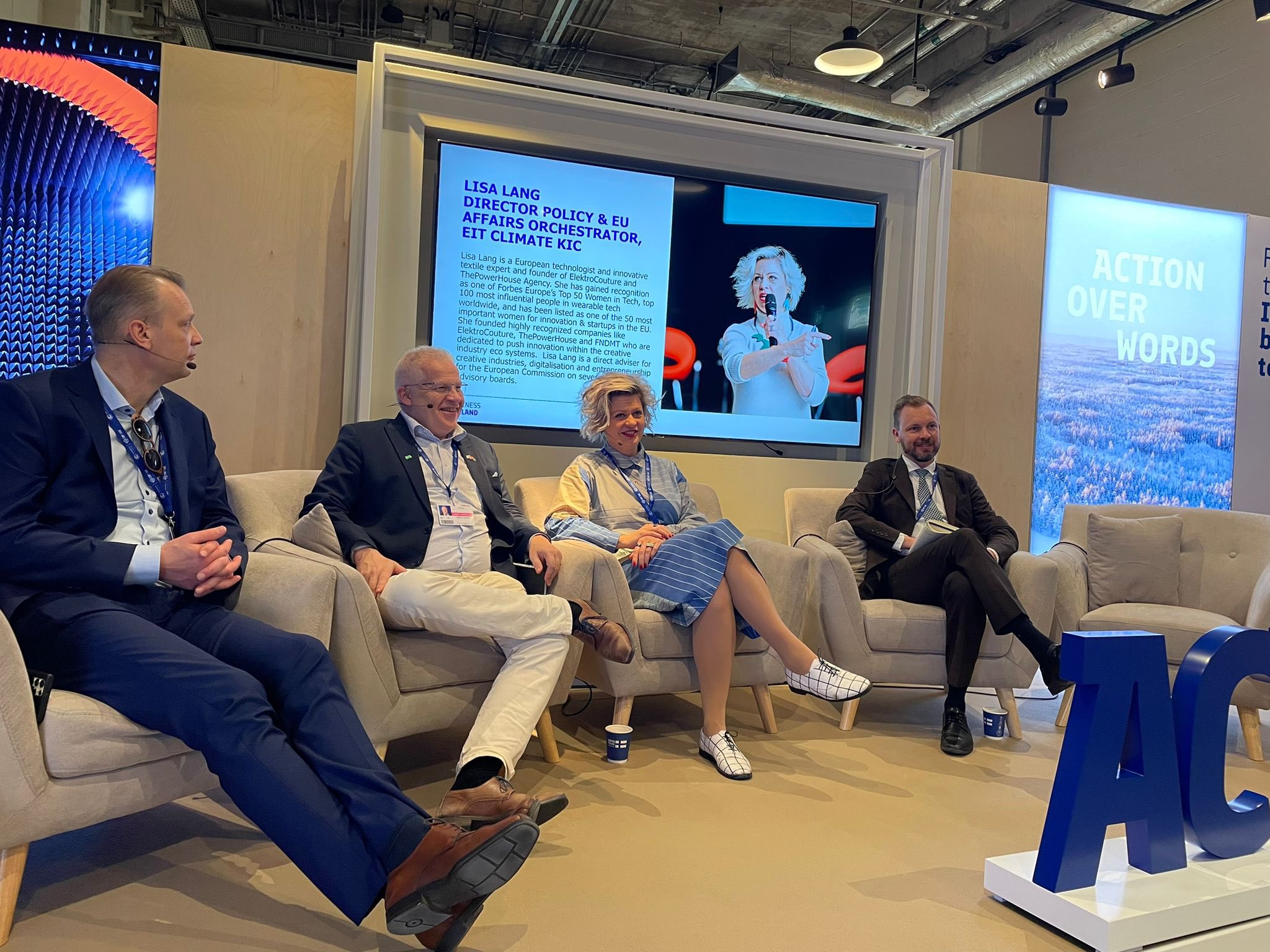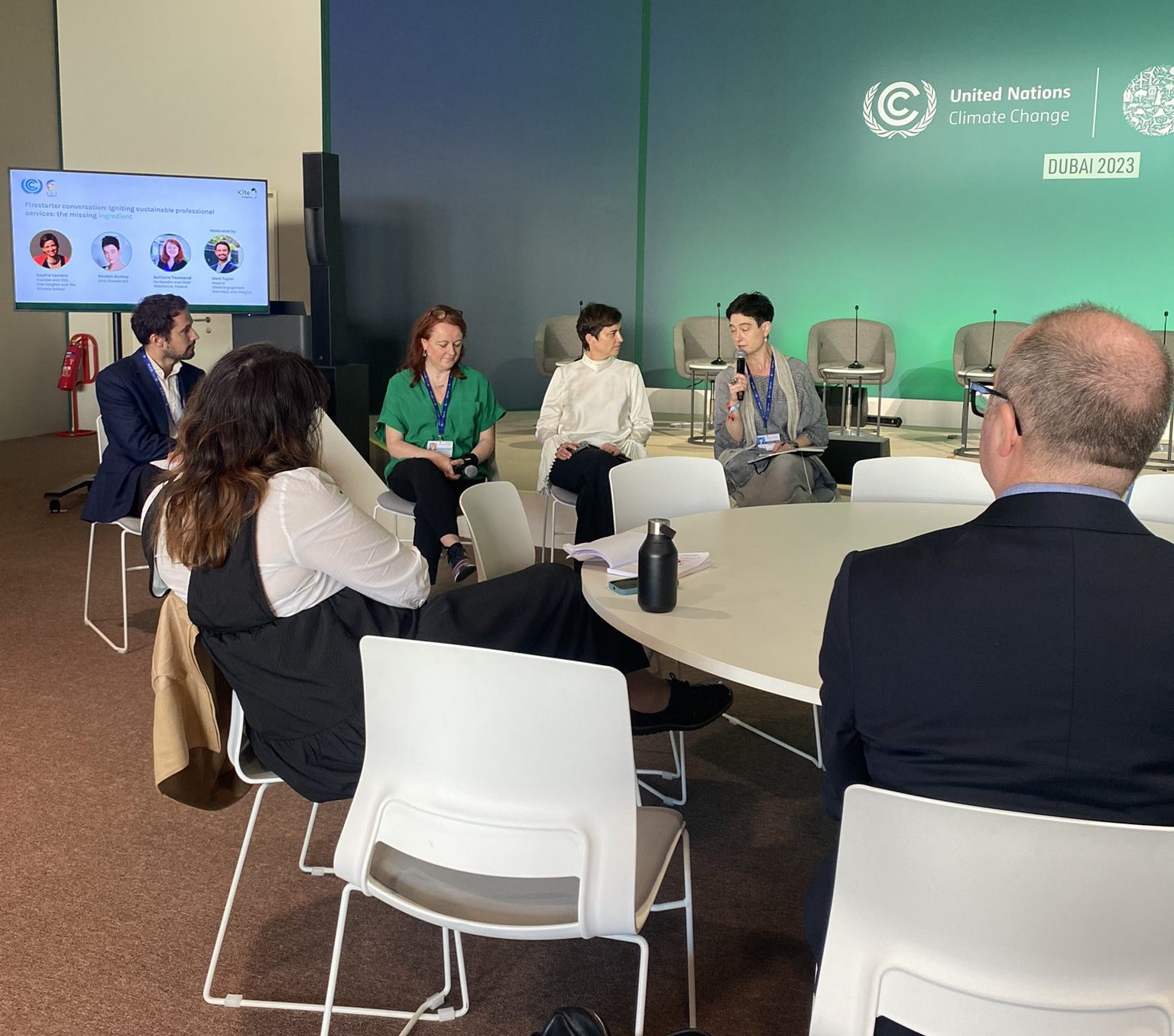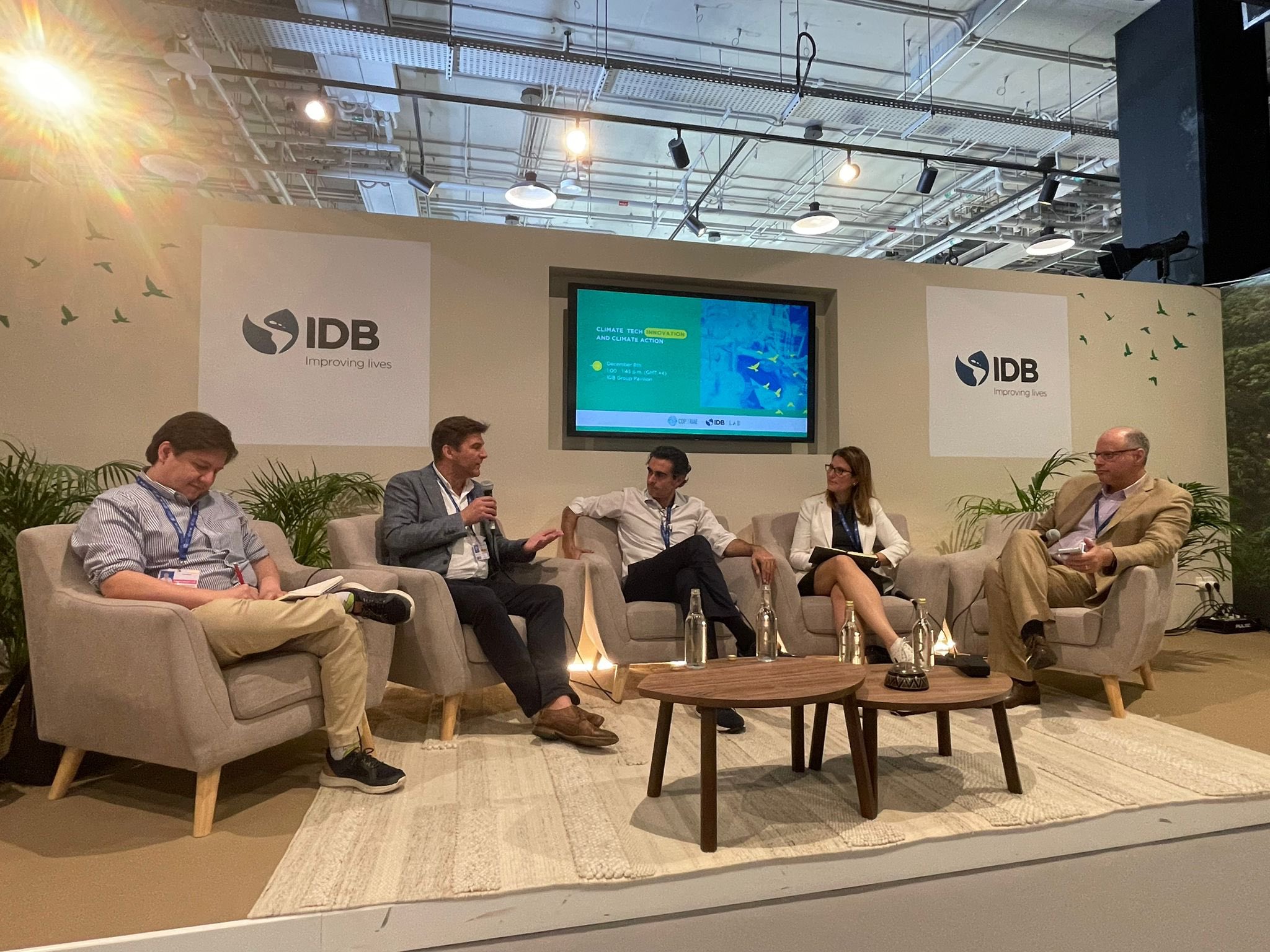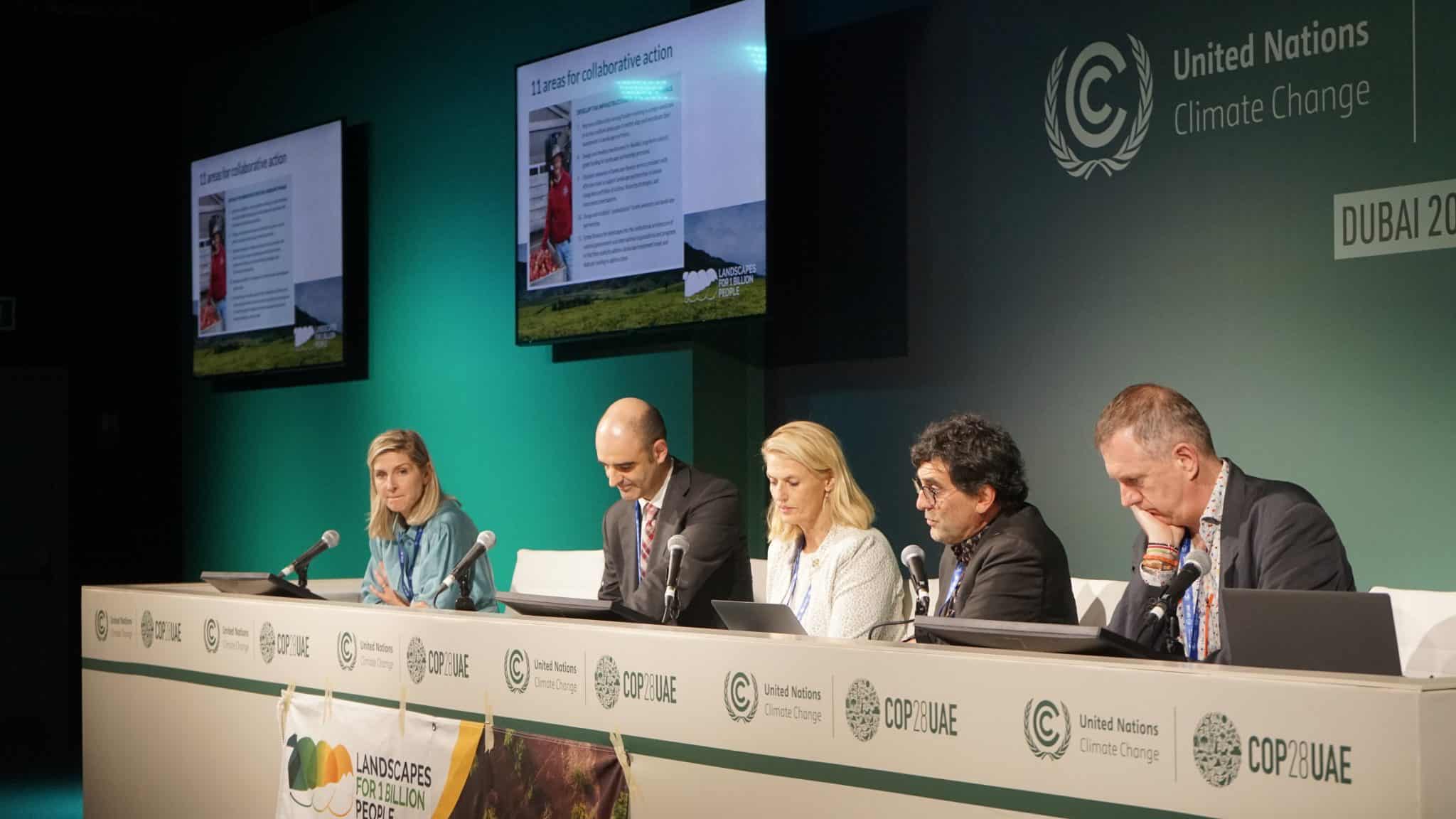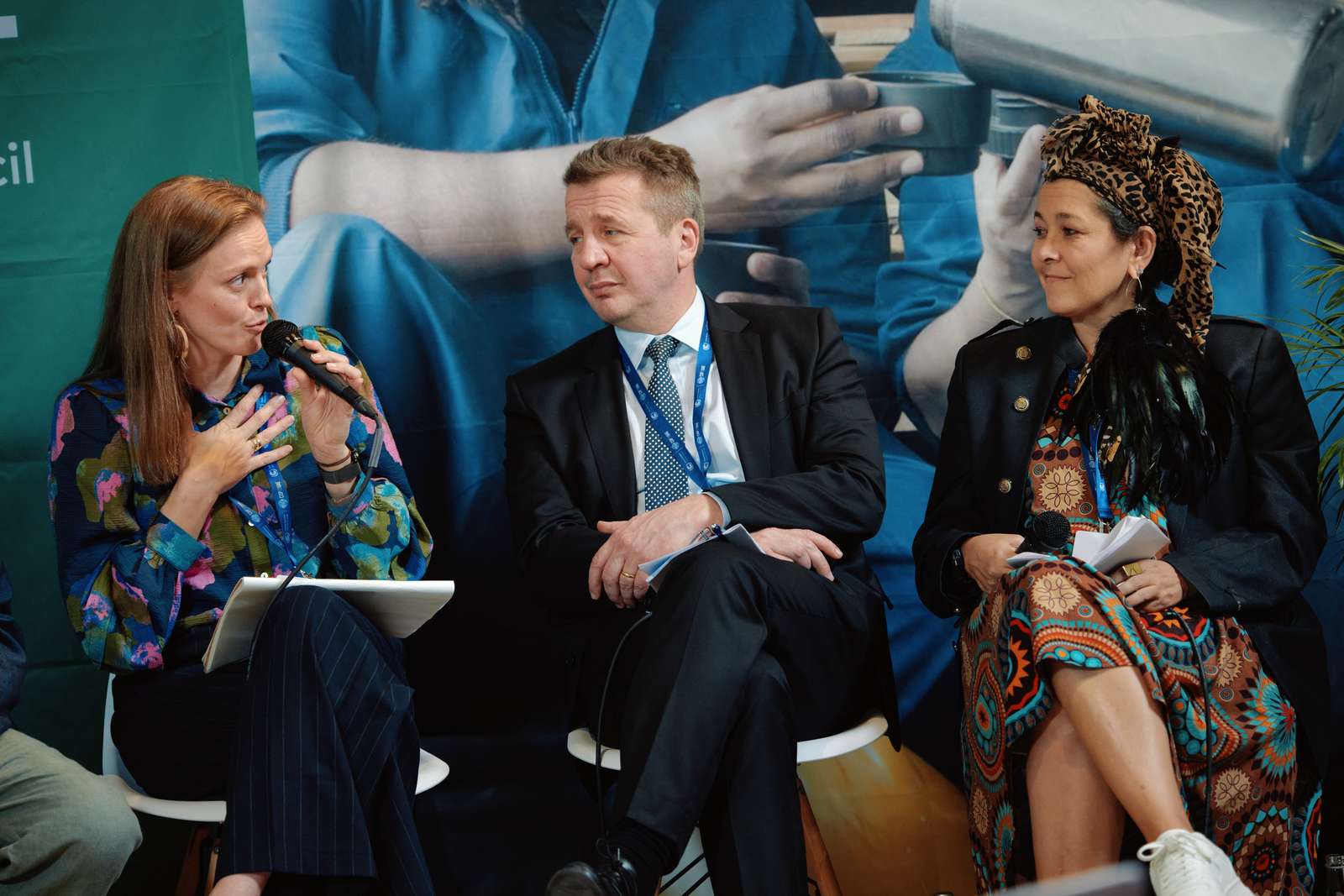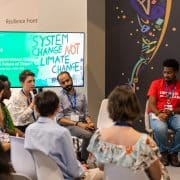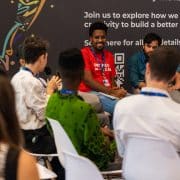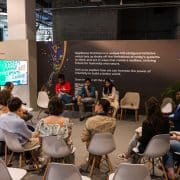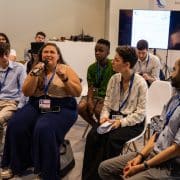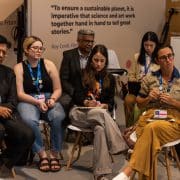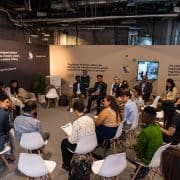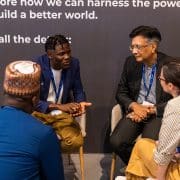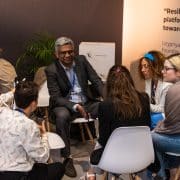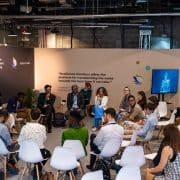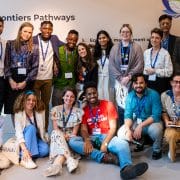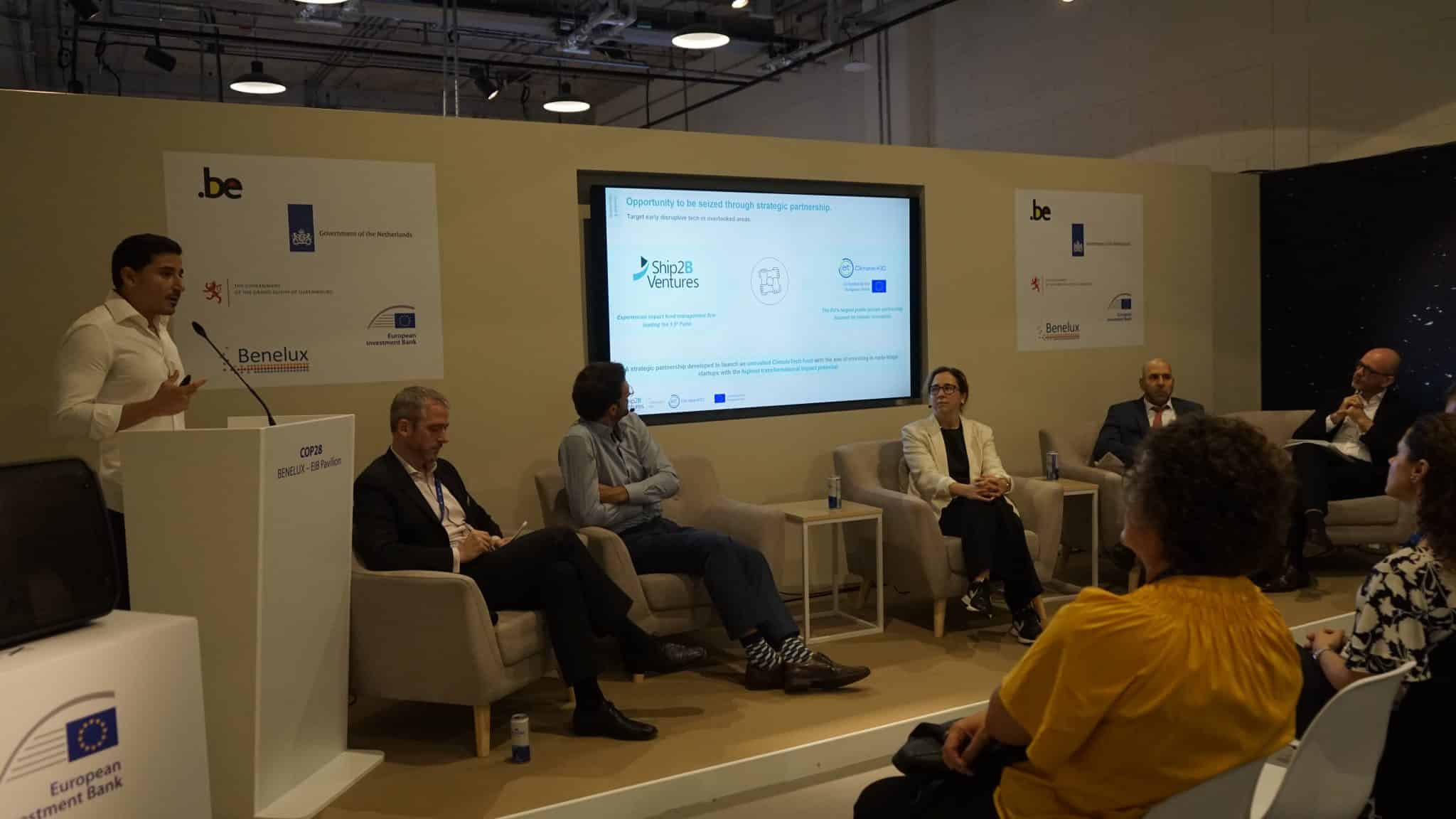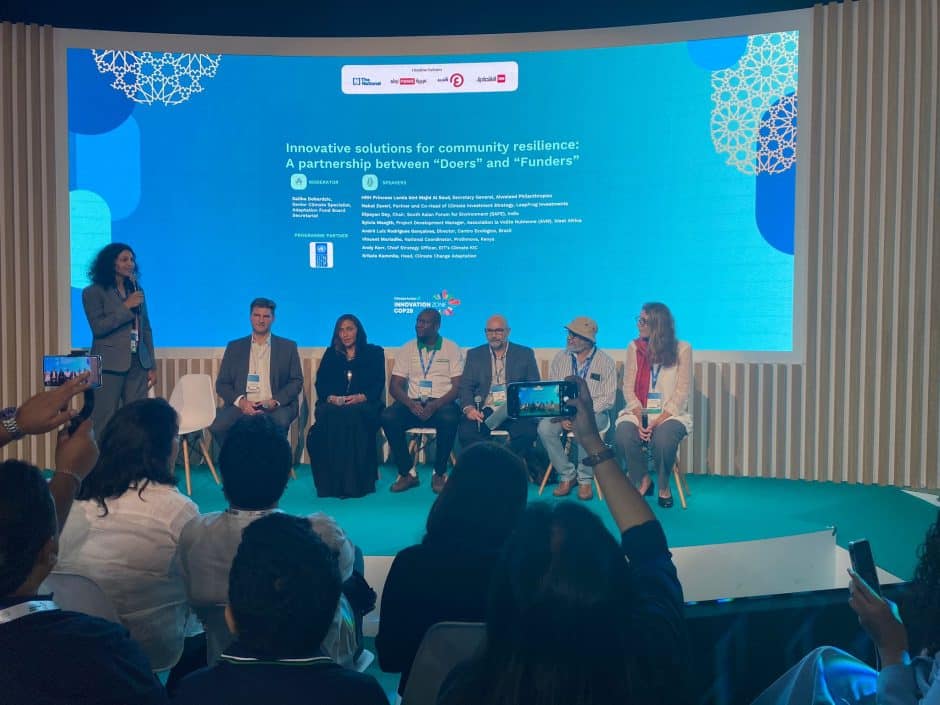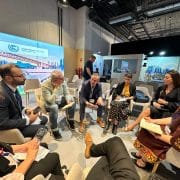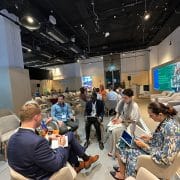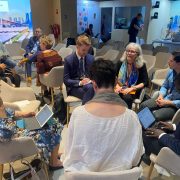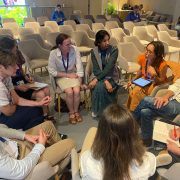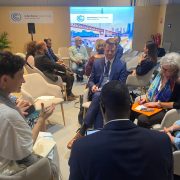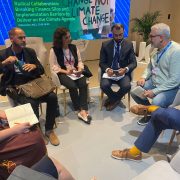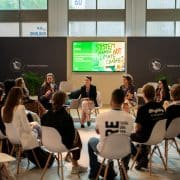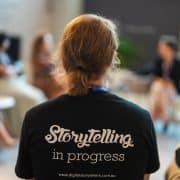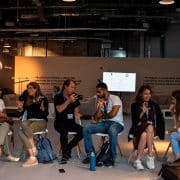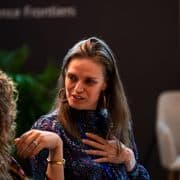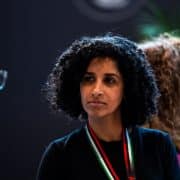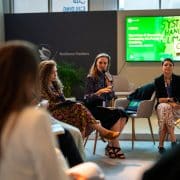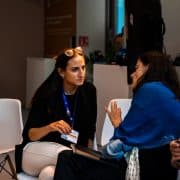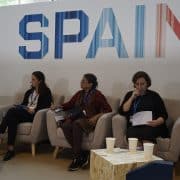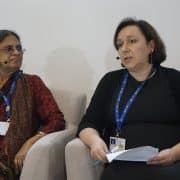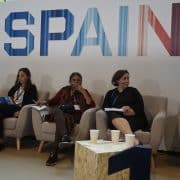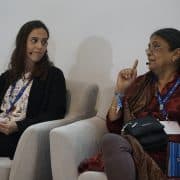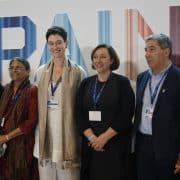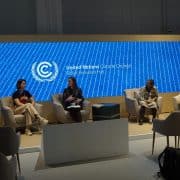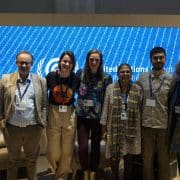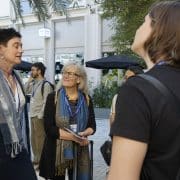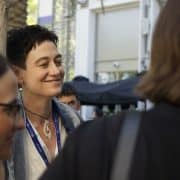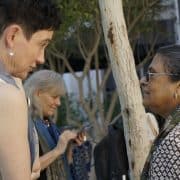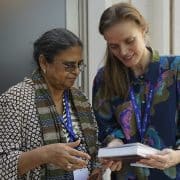Climate KIC at COP28
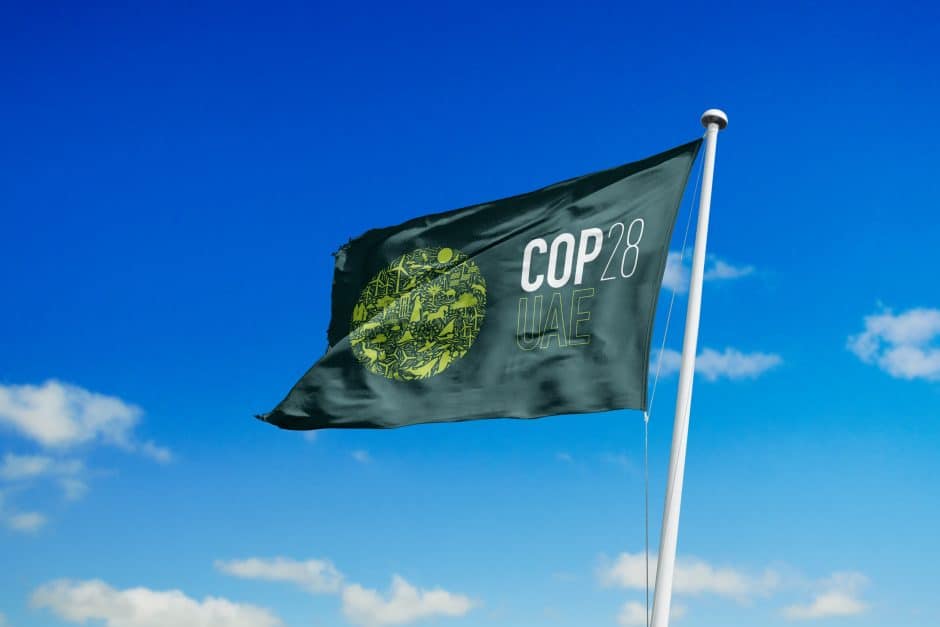
Climate KIC is at COP28 in Dubai, UAE, to talk about how we support city, regional and national leaders to bridge the gap between climate goals commitments and current reality. We are regularly publishing updates from our delegation on the ground on this page.
Join our COP28 eventsSubscribe to our COP28 mailing list
Day 10: Monday, 11th December, 2023
While the COP28 Presidency was finalising the new Global Stocktake text, our day at the UNFCCC Global Innovation Hub was bustling with four side events discussing the role of creative and cultural industries in climate action.
During the session addressing technological and systemic advancements that could positively transform the fashion industry, speakers highlighted its main challenges: excessive clothing production, inadequate policies to tackle issues like waste, and the power imbalance between buyers and suppliers.
In the engagement session involving the creative community, youth, local communities, and net zero cities in climate action, Mari Asada, an NFT artist from Japan, shared her experiences in co-creating a climate-safe future.
In the session focusing on narrative and storytelling for climate action, the discussion revolved around “the role of culture, creative arts, and human imagination in transforming human life and design to tackle pollution, poverty, inequality, and climate change,” as stated by Kirsten Dunlop, CEO of Climate KIC. She added, ” We need to work out how to describe the future we want and how to win the story war.”
Jarel Clay from the Hip Hop Caucus remarked, “We’ve relied on data and science as the messengers for climate change. Now, we’re utilising comedy, music, and film to present alternatives to the current reality and engage audiences who don’t view themselves as responsible for the present situation.”
Melissa Rowley from Warrior Love Production stressed the importance of collaborating with screenwriters and encouraging them to incorporate more climate storylines into scripts and into pop culture.” She added: “We also need to make these stories emotional and joyful.”
Day 7: Friday, 8th December, 2023
The Blue Zone was closed on Thursday the 7th, giving delegates some more time for bilateral meetings. On Friday morning, Climate KIC Head of EU Policy, Lisa Lang, discussed the future of industries and explained that the new EU legislations and regulations will create an immense opportunity for Europe and entrepreneurs.
Participating in a side events organised by Kite Insights, Climate KIC CEO Kirsten Dunlop emphasised on the importance to redefine what is “a good job”. She said: “A lot of people are now studding for jobs that are going to be obsolete in the near future.”
At the IDB Pavilion, Climate KIC Chief Strategy Officer, Andy Kerr was participating in a panel discussion on ey private sector climate tech innovations, especially solutions coming from the Latin American and Caribbean region. He said: “Not enough of these fantastic startups are scaling at the pace that we need. We are trying to take a much more systemic view, which requires radical collaboration”.
Later in the afternoon, Climate KIC Director of Sustainable Land Use Daniel Zimmer, participated in a side event with partners such as Commonland, the World Resources Institute, Rainforest Alliance and 1000 Landscapes on “Integrated landscape finance” or ILF. This new approach to financing climate projects that takes a holistic view of the landscape to optimise investment. It recognises that climate change is a complex issue that requires a comprehensive solution spanning agriculture, forests, finance and access to it, food systems, renewable power generation, rural development, and other elements.
Read this article for more information on the role of public finance in advancing holistic landscape restoration. and rewatch the session here.
In a side event on the gender divide in green employment, organised at the Nordic Pavilion, Climate KIC Director of Learning, MEL & Insights, Solla Zophoniasdottir, emphasised on the need to broaden the definition of green jobs.
Day 6: Wednesday, 6th December, 2023
On Wednesday, we facilitated a participative session titled “Intergenerational Dialogue and the Future of Cities“, where we discussed with youth and city representatives as well as organisations from the civil society how to overcome the barriers that prevent young people from bringing their voices to the city level. We were honoured to be joined by a group of very inspiring young men and women from Brazil, Uganda, France, Kenya, etc. During this session, Shrashtant Patara of Development Alternatives urged the participants to look closely at the future of jobs as the changing nature of both formal and informal work will have a cathartic effect on urban settlements.
On Wednesday, we also organised a press conference, where we invited Jo Tyndall from the OECD, Jorn Verbeeck from the EU Mission of Net Zero and Smart Cities, and Liam Brennan from the Department of Agriculture, Fisheries and the Marine of Ireland to join Solla Zophoniasdottir and Andy Kerr from Climate KIC to talk about bridging the implementation, finance, and capacity gaps to reach climate goals.
Mido Talhouni participated in the side event “Climate Dragon’s Den: Presenting the future leaders in climate finance” at the BENELUX Pavilion, to showcase the 1.5 Fund, a fundraising initiative spearheaded by Climate KIC in collaboration with Ship2B Ventures. You can rewatch the event here.
The critical role of cities in global decarbonisation efforts was also discussed at a high-level panel moderated by CEO Kirsten Dunlop with representatives from major cities from around the world, from Delhi, India to Rosario, Argentina. Cities and their leading role in whole-place transformation took centre stage at our session on holistic and systemic urban transformation at the Global Innovation Hub Pavilion, which included reflections on the need to address both mitigation and adaptation, as well as innovative finance and business models, multi-level governance, policy innovations and community-owned development.
Rounding off the day, our Slovenia Deep Demonstration programme was the spotlight of a session organised at the EU Pavilion that delved into decarbonisation efforts led by the construction sector, in order to enhance circular economy in the central European region.
Day 5: Tuesday, 5th December, 2023
Climate KIC CEO Kirsten Dunlop moderated a compelling side event led by Kite Insights. This session delved into the identification of ‘positive tipping points’ crucial for climate action and emphasised how these changes can catalyse extensive systemic transformations across diverse cultures, societies, and geographical landscapes.
Meanwhile, Climate KIC’s Head of Learning, Solla Zophoniasdottir, was interviewed by the Resilience Frontiers team. The discussion centred on the role of climate narratives and storytelling. This conversation built upon the valuable insights derived from the Climate KIC-led workshop conducted on December 3rd. Zophoniasdottir emphasised, “Stories are the way we relate to one another.” You can watch the interview below for deeper insights.
Day 4: Monday, 4th December, 2023
While COP negotiators from all over the world are trying to agree on a few important texts such as the Global Stocktake and the Goal on Adaptation, side events on all sorts of topics continue to be held around the Expo in Dubai. On day 4, we had an inspiring session at the Climate Action Innovation Zone about the role of innovation in tailoring adaptation strategies to specific local needs. We heard from funders and grassroots entrepreneurs who are working to ensure climate finances are deployed effectively.
In the afternoon, we convened for an engaging session on pioneering innovative approaches to collaboration within philanthropic funding and implementation strategies. Participants representing philanthropies, foundations, and implementation organisations shared insights into the challenges hindering collaborative efforts. They delved into issues such as competition for funding, the stringent due diligence procedures mandated by investment committees, and the legal constraints that often impede collaboration.
Additionally, they highlighted individual organisational needs. One participant emphasised the importance of recognising the interconnected nature of our respective organisational initiatives. Another participant articulated a desire to shift focus from fundraising to on-the-ground implementation, stating, “We need to stop fundraising, we want to do the actual work on the ground”. The session provided a platform for diverse perspectives and a collective commitment to addressing these challenges, paving the way for more effective collaboration and impactful work.
Day 3: Sunday 3rd December, 2023
Over the weekend, 123 countries signed the ‘COP28 UAE Declaration on Climate and Health’ to accelerate actions to protect people’s health from growing climate impacts. It includes building more climate-resilient health systems and increasing finance for climate and health solutions. You can read all about it here.
118 countries (and counting) also pledged to triple global renewable energy capacity to at least 11,000 GW by 2030. The countries’ leaders also agreed to double the annual global average rate of energy efficiency improvements from 2% to more than 4% every year until 2030. More on this here.
At Climate KIC, we have been busy participating and listening to many sessions including on climate finance, global-north collaboration, and catalysing climate adaptation and resilience innovation in Africa. We have heard a lot of talks about the need to leverage private markets to support public initiatives, especially around climate adaptation and resilience.
One of the highlight of the day was the participative session we hosted at the Resilience Frontiers Hub around climate narratives, where we practised listening in small groups and talked about how to use our own story to better tell what we do in our organisations.
Day 2: Saturday 2nd December, 2023
On the second day of COP28, more than 130 countries signed up to the Emirates Declaration on Sustainable Agriculture, Resilient Food Systems and Climate Action. This is the first time that world leaders promise to tackle the significant impact that food and agriculture have on climate change. Countries that have signed up represent 5.7 billion people and are responsible for 75% of all emissions from global food production and consumption. From now on, they pledged to include food emissions in their plans to tackle climate change, also known as Nationally Determined Contributions (or NDCs). More on this here.
If you’re interested in this topic, we’ll have a session on Sunday, 10th December from 11:30 to 12:00 GST about the challenges in the implementation of regenerative agriculture practices at the Spanish Pavilion with our Director of Sustainable Land Use, Daniel Zimmer. More information on this here.
Now, today was another busy day for the Climate KIC delegation. One of the highlights was our session about the development of resilient and livable cities, where panellists exchanged ideas and experiences on how to make cities’ decision-making processes truly inclusive for all. They emphasised the necessity to build strong alliances to implement policies that have a real positive impact on communities.
Day 1: Friday 1st December, 2023
COP28 started with a standing ovation from delegates, as parties agreed on the creation and structure of the “loss and damage” fund, which will source money from developed countries to help pay for climate damage in developing ones. It’s the first time that the world has a system in place for climate reparations. You can read more about it here.
In the meantime, the Climate KIC delegation started to arrive in Dubai. We are organising and participating in a couple of dozen panels (our full programme is here) and on Friday, we had our first on-site panel at the Global Innovation Hub Pavilion. Speakers discussed our relationship to property and property ownership, the need to shift to nature-based leadership and nature-based education principles, and much more.

